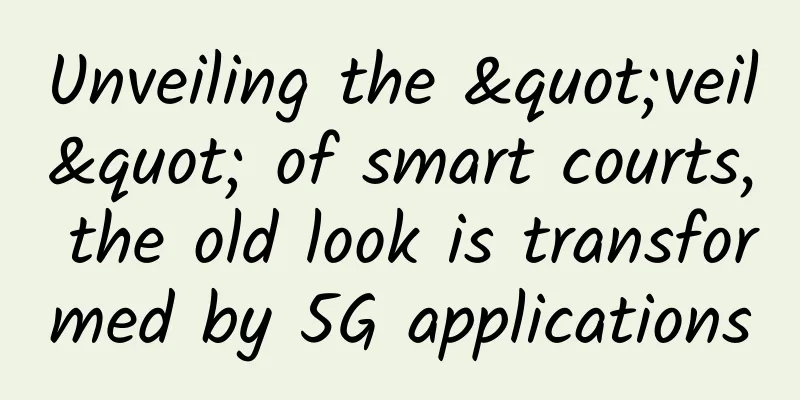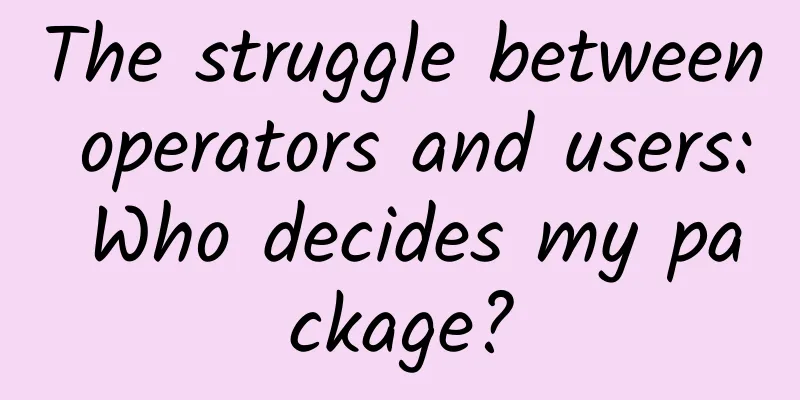Unveiling the "veil" of smart courts, the old look is transformed by 5G applications

|
In a society ruled by law, it is normal to go to court when there is a dispute, but nowadays, it seems that many people are unwilling to do so. There are many reasons behind this. On the one hand, it takes too long to go to court and the procedures are too cumbersome; on the other hand, there are some problems that the court cannot handle well, especially since the current court personnel and resources are relatively limited and it is impossible to take care of everyone.
In this context, how can we reshape the status of courts in people's minds, enhance the efficiency and quality of court work, and ensure that courts can benefit everyone? Cool technology solves problems. The emergence and application of various intelligent technologies are now pushing courts towards intelligence and informatization. Including 5G, robots, etc., are promoting the transformation of courts and giving birth to new vitality. From July 27 to 28, the "2021 Political and Legal Intelligent Construction Technology Equipment and Achievement Exhibition" co-organized by Legal Daily and Beijing Security Industry Association was held at the Beijing National Convention Center. At the conference, we saw many smart court cases and achievements, such as Beijing Cloud Court, Liaoning Court Internet Comprehensive Business Platform, Tianfu Smart Court Rong e-Litigation, etc. Among them, the smart courts that incorporate 5G technology have undoubtedly attracted much attention. Relying on the characteristics of 5G high speed, low latency, and continuous attack, the 5G smart pen, 5G portable cloud box, 5G trial book and other equipment have greatly facilitated the completion of tasks for court workers, and at the same time effectively promoted the efficiency and speed of court work, and enhanced the informatization, intelligence and authority of the judiciary. For traditional courts, the application of 5G technology can bring two functions and values: One is to promote the upgrade of court trial functions. In online trials, in the past, there were often problems such as high latency, freezes, lack of clarity, and lack of realism when using the Internet and live broadcasts. However, 5G can effectively solve these problems with its own advantages. By improving clarity and real-time performance, 5G can improve the efficiency and quality of trials and enhance the realism and ritual of online trials. At the same time, 5G allows both parties to participate remotely anytime and anywhere, which greatly improves the simplicity and convenience of trials. In addition, 5G allows large amounts of data to be stored in the cloud, which can also facilitate on-demand access, use and inquiry during the trial, achieving full-process traceability and supervision; through integration with intelligent equipment such as VR, it can enrich trial methods and improve the level of trial; and through integration with big data and the Internet of Things, 5G can also provide information feedback to offline trials through data collection, analysis and processing, and can also assist judges in conducting more efficient, accurate and effective trials and executions. The second is to promote the upgrade of the security function of the court. As we all know, the security work of the court is of vital importance. It is not only a guarantee of the order of the court, but also a responsibility for the rights and interests of the people. Based on this, the application of 5G can directly deepen the security strength of the court by strengthening the communication capabilities between personnel. At the same time, 5G can be added to smart devices such as cameras and robots to greatly improve the security level of the court, making the work of the court safer and more secure. In summary, 5G brings a lot of benefits to the courts. Based on this, with the continuous acceleration of 5G construction in my country in recent years, my country has also accelerated the integration and innovative application of 5G and courts. For example, in 2019, the Guangzhou Intermediate Court cooperated with Guangzhou Unicom to build the country's first 5G smart court, which was officially put into use in 2020; in addition, in September 2020, the Zhengzhou Intermediate People's Court also built the first 5G full-process multi-scenario smart trial system in Henan Province. So far, 5G smart courts have appeared in many places in my country, and the combination of 5G and courts is like a spark that has ignited one after another. However, although the value of 5G smart courts is not small and their development is gradually rising, there is still a long way to go before they can be normalized. Since the basic status of 5G and the courts themselves is relatively weak, in order to achieve large-scale popularization and normal development in the future, we need to pay attention to three points. The first is to enhance 5G network construction. The premise of 5G application is the network, and the network is inseparable from the construction of base stations. At this stage, although the construction speed of 5G base stations in my country is fast, the coverage is not complete. Only by continuing to increase the construction of 5G base stations, improving 5G network coverage, and ensuring the normal and stable 5G signals can 5G applications be carried out on a regular basis and 5G technology can be truly implemented in court scenarios. The second is to improve public acceptance. If 5G smart courts are to be popularized, public recognition and acceptance are necessary. At present, due to the small number of 5G smart courts and high equipment requirements in applications, many people still find it difficult to adapt to and accept 5G smart courts. Under this circumstance, the mature development of 5G smart courts requires, on the one hand, reducing the price of related equipment and increasing the scope of 5G implementation, and on the other hand, expanding related publicity to improve public experience. Finally, we need to cultivate professional talents and strengthen the construction of infrastructure such as software and systems. The implementation and popularization of 5G smart courts also rely on the support of compound and professional talents. In the future, courts need to have not only legal knowledge, but also technical knowledge. Based on this, my country needs to strengthen the training and reserve of relevant talents. At the same time, the application of 5G technology also requires software systems to support it, and my country also needs to strengthen its construction in the future. |
<<: External tools connect to SaaS mode cloud data warehouse MaxCompute practice
>>: What is the Internet of Behavior (IoB)?
Recommend
Regarding the 6G satellite, I am "confused"
[[351012]] On November 6, a satellite named "...
Review of 5G industry virtual private networks in 2021: Blooming in multiple places and sailing with the momentum
If 5GToC helped operators achieve a return to bas...
Who is most nervous about the hyper-convergence reshuffle? American companies save 96% of costs by using hyper-convergence
【51CTO.com Quick Translation】According to Gartner...
Real-time communication technology battle
[[395758]] This article is reprinted from the WeC...
State Council: Promote broadband "speed increase and fee reduction" to improve people's "sense of gain"
The State Council Executive Meeting reviewed and ...
Huawei Cloud and Xinhua News Agency work together to bring news closer to you
The booming development of digital technology has...
Why don’t we have more options for in-building connectivity?
2019 was a transformational year for the telecomm...
How to truly experience 1G internet speed in the 5G era? WiFi has become an important help!
According to statistics, 20% of the sites in hots...
Tudcloud: Hong Kong VPS monthly payment starts from US$7.2, with options for high bandwidth or unlimited traffic
Tudcloud is a newly opened hosting company that p...
5G acceleration and VR mobility: what changes will digital audio-visual content undergo?
Every innovation in media technology drives the s...
Understanding OpenID Authentication through Examples
In the article "Understanding OAuth2 through...
Unleashing the Potential of Connections 2018 Huawei Network Innovation Technology Forum Launched in Beijing
[51CTO.com original article] In recent years, in ...
What new developments have occurred in the 5G field in the first half of 2022?
On June 6, 2022, as 5G licenses were issued for t...
Linux common command find record
The tribe recorded some usage of the find command...
What exactly is RedCap?
With the freezing of 3GPP R17, a new term has gra...









